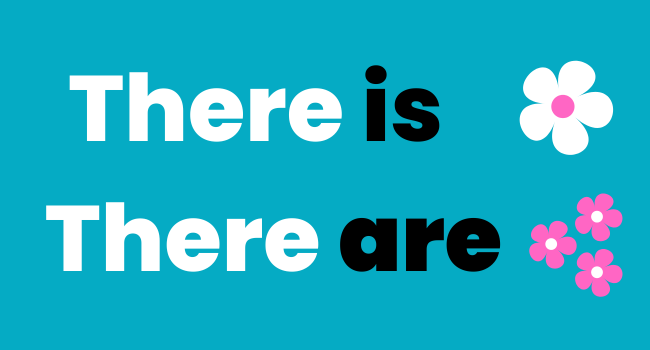
In this lesson, let’s talk about the difference between there is vs there are. We use there is and there are to say that something exists or doesn’t exist. We use there is and there are in the present tense.
There is / There’s (+ Singular Noun)
We use there is or there’s (contraction of there is) with singular nouns. If there is one boy in the room, we would say “There’s one boy in the room” or “There is one boy in the room.”
Examples:
- There’s one piece of cake left.
- There’s a girl sitting on the bench.
- There’s a banana on the table.
- There’s a bird chirping outside.
- There’s a little dog walking down the street.
In all of these examples, we are talking about singular nouns, so we use “there is” or “there’s”.
There are (+ Plural Nouns)
We use there are with plural nouns if we are talking about the existence of more than one thing. We would say, “There are two men in the conference” or “There are many flowers blooming outside.”
Examples:
- There are many people at the concert.
- There are trees in the yard.
- There are cupcakes in the kitchen.
- There are many vehicles on the road.
- There are three apples left.
Forming Questions
We form questions by saying “Is there?” or “Are there?” plus singular or plural nouns to ask about the existence of something.
Examples:
- Is there a cat outside?
- Is there a teacher in that classroom?
- Is there a boy whistling outside?
- Are there dogs in the park?
- Are there many movies to choose from?
- Are there people in the club?
Negative Form: There isn’t / There aren’t
The negative form of there is vs there are is there isn’t and there aren’t. We use the negative form to say that something doesn’t exist.
Examples:
- There isn’t any room for us in the car.
- There aren’t many people at the party.
- There isn’t much light in here.
- There aren’t any chocolate bars left at the supermarket.
Today’s homework:
Look around your room and talk about your surroundings using there is/there are and there isn’t/there aren’t.
Example:
- How many chairs are there in your living room?
- How many televisions are there in your house?
- How many people are there in your house?
- How many pets are there?
Take our quiz on there is vs there are below:
Share your results in the comments section! What did you get out of 5?

Leave a Reply